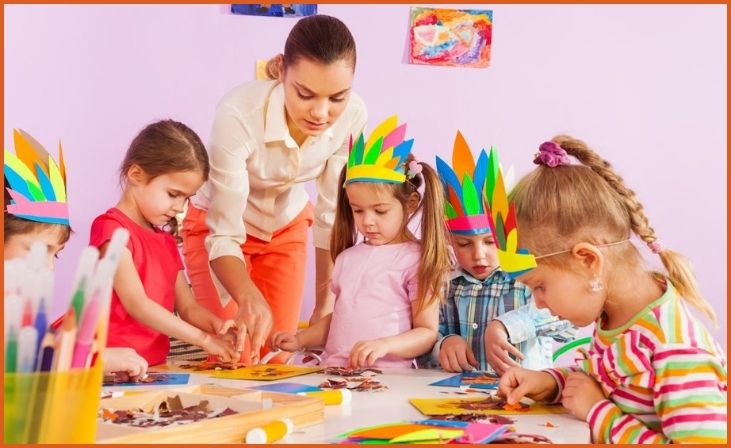An Early Childcare Educator plays a crucial role in the development of young children during their formative years. They provide guidance, support, and education, helping to shape the foundation of a child’s learning and social skills. These educators are not only responsible for teaching basic academic skills but also for nurturing emotional, social, and physical development.
Early Childcare Educator

Early childcare educators work with children during their early years, focusing on guiding peer relationships and teaching essential communication and teamwork skills. Through their support, children learn how to interact with others, develop friendships, and build the social skills necessary for future success. These educators play a vital role in helping children understand the importance of collaboration and empathy in their interactions.
Building Blocks of Learning
Reading, writing, and math are the cornerstone of a good education, but the role of an early childcare educator goes beyond these basics. Skilled early childcare instructors are essential to laying a solid foundation for lifelong learning. They introduce children to these fundamental concepts in ways that are engaging and appropriate for their developmental stage, ensuring that each child begins their educational journey with confidence and curiosity.
Compassionate and Caring
Young children require a great deal of love and attention from their caregivers to grow and thrive. Early childcare educators understand the importance of being compassionate and caring in their interactions with children. They provide a safe and nurturing environment where children feel valued and supported, helping them to develop a strong sense of self-worth and emotional security.
Creative and Flexible
Creativity is a key component of early childhood education. Educators must be flexible and inventive in their teaching methods, using play-based learning to engage children and foster their natural curiosity. At Creative Childcare, for example, play-based learning is at the heart of their approach, emphasizing the importance of creativity in helping children explore the world around them and develop critical thinking skills.
Patient and Kind

Working with young children requires a great deal of patience and kindness. Children under the age of five are naturally curious and eager to learn, but this curiosity can also make them impulsive and reactive. Early childcare educators must be patient as they guide children through these early stages of development, helping them learn to manage their emotions and behaviors in a positive way.
Organized and Structured
Children thrive in environments where they know what to expect, and early childcare educators must be organized and structured in their approach. A well-organized educator runs a smoothly functioning classroom and is prepared to handle any situation that arises. This structure provides children with a sense of security and helps them develop the discipline and routines that are essential for future learning.
Choosing the Best Early Childhood Educators
When selecting early childhood educators, it’s important to choose those who are trained in child-led, open-ended play, as this approach fosters confidence and independence in children. The best educators understand the importance of allowing children to explore their interests and learn at their own pace, providing the guidance and support needed to help them grow into confident and capable individuals.
Childcare Educator

Under the direction of early childcare educators, children not only build emotional bonds but also discover lifelong interests. These educators play a pivotal role in shaping the experiences that will influence a child’s future passions and skills. By creating a supportive and enriching environment, early childcare educators help children develop the emotional resilience and enthusiasm for learning that will serve them throughout their lives.



